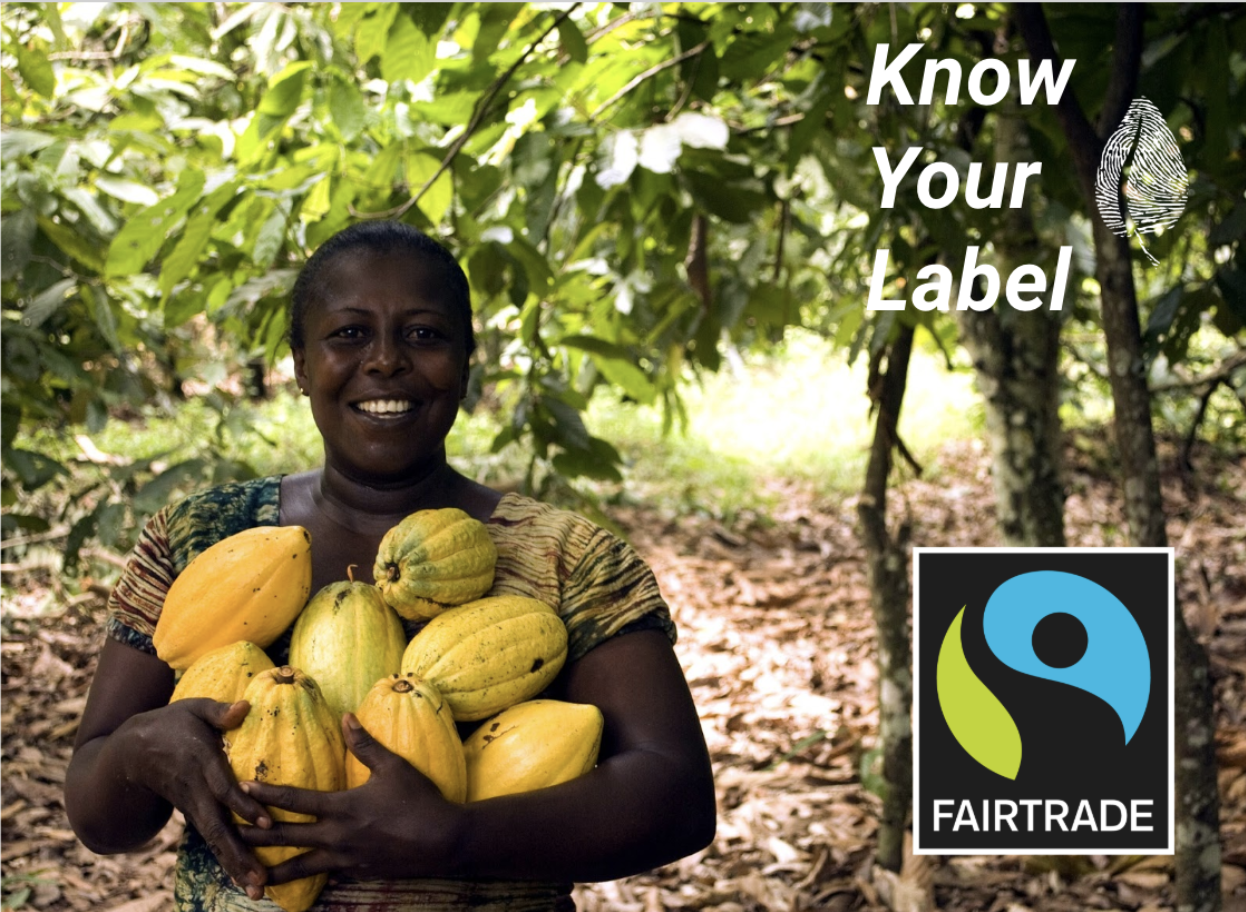Try our new free GreenChoice - Food Scanner mobile app!
DOWNLOAD-
-
-
Diets
Allergies
Take our 30-second quiz & we’ll filter our site to show only products that match your dietary preferences.
- GCNow
- Know Your Label: Fairtrade America

Fairtrade seeks to improve lives, working conditions, the environment and the economy by creating networks of “fair trades” between producers and consumers.
It’s week four of Know Your Label! Today, we will continue our journey into common food labels by taking a close look at the history, standards, and impact of the Fairtrade America certification, not to be confused with Fair Trade Certified.
Fairtrade America

The first Fairtrade coffee from Mexico was sold in the Dutch markets in 1988. The label was dubbed Max Havelaar, and was created by the Solidaridad, a Dutch development agency.
Over the next nine years, the Max Havelaar initiative was replicated throughout Europe and North America. Then in 1997, Fairtrade Labelling Organizations International (FLO or Fairtrade International) was born to unite the various Fairtrade organizations. This created universal standards along with a universal certification, that was officially launched in 2002 (1). Today the Fairtrade label is “the world’s leading ethical and sustainable certification mark,” (2).
Defining Fairtrade. Fairtrade is an alternative to conventional trade, that places an emphasis on creating equality and partnerships between consumers and producers (3). This relationship helps to improve the lives and working conditions of farmers and producers in developing nations, while protecting the local environment and economy.
Here’s how it works. Farmers work together in democratically run collectives(for example, a cocoa grower works with other cocoa growers). This helps the farmers negotiate better prices for their crops and makes it easier to work with distributors. By using this system, farmers in these fairtrade collectives are paid a standard agreed upon price for their crop and also given a premium. Ensuring a fair price helps to keep farmers out of poverty, while the premium is put towards the environmental, economic and social development of the local community. Check out this video from Fairtrade America for more information about the purpose of Fairtrade.
Various organizations under the Fairtrade International Umbrella serve as third-party auditors to help create fair trade relationships and certify operations with the label. Fairtrade vs fair trade: Fairtrade refers to any activity of FLO or the organizations under its umbrella. A fair trade, on the other hand, is a trading partnership that promotes equality in international trade.

Fairtrade America. Fairtrade America is an independent non-profit under the umbrella of Fairtrade International. The organization has four responsibilities: 1) Certifying products that will sold in America with the fairtrade mark. 2) Empowering Fairtrade producers to sell their products in the US. 3) Working with local business to support producers and their networks. 4) Raising awareness of the need to make trade fairer.
The International Standards: There are six different categories of standards: (1) for small producer organizations, (2) for hired labour, (3) for contract production, (4) for trader standards, (5) for climate standards and (6) textile standards. Within each of these categories, the standards are even further broken down by location, product, and various regulations within the other categories. Check out the standards on the Fairtrade International website.
Understanding the Label: The symbol on the Fairtrade label looks the same all over the world: a person within a green and blue circle. However, the country or region underneath determines where the product was certified. For example, coffee that is has a certified network in America will be certified by Fairtrade America, and the label will say “Fairtrade America” under the logo.
That being said, the label has three different meanings:

- For products such as a bundle of bananas, the mark means that 100% of the product meets the Fairtrade standards.
- For products with multiple ingredients, all ingredients that can be Fairtrade sourced, must be Fairtrade. In this case, just 20% of the content must be certified.
- For cosmetics, the minimum Fairtrade content requirement is only 2% for shampoos, toothpastes, and soaps, or 5% for lip balms and lotions.
Fairtrade seeks to improve lives, working conditions, the environment, and the economy by creating networks of “fair trades” between producers and consumers. Buying a Fairtrade product certifies that your product is safely produced. While Fairtrade is not a tell-all about a product, it is a great starting place to understand the story behind a product, where it came from and how it was made.
***
GreenChoice, PBC has evaluated and rated more than 340,000 food & beverage products across hundreds of attributes related to diet, health, and sustainability. Easily find the best products for you, the planet, & your budget. Download the free GreenChoice app for Apple iOS or Android!